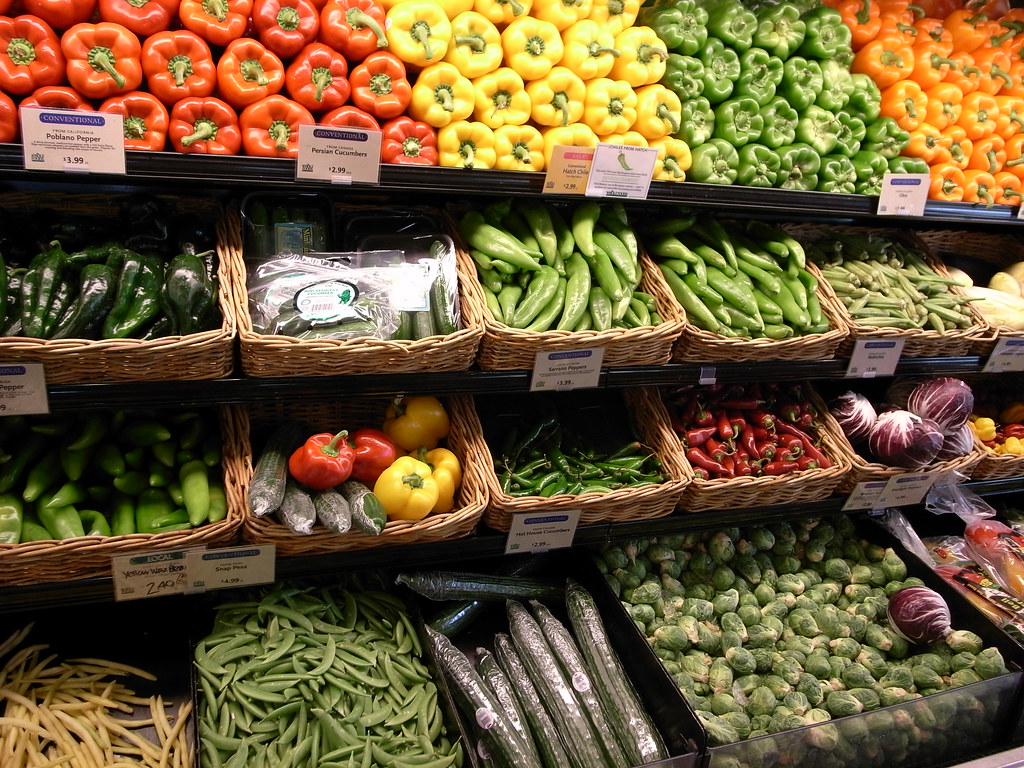Foods That Naturally Lower Stress and Anxiety are essential allies in our journey towards mental well-being. The connection between diet and emotional health is undeniable; what we consume can significantly influence our stress levels and anxiety. In this article, we’ll explore nutrient-rich foods that can help alleviate stress, specific items that are proven to have calming effects, and lifestyle changes that can enhance the benefits of these dietary choices.
Understanding the impact of what we eat on our mental state opens up new avenues for managing stress and anxiety, allowing for a holistic approach that encompasses both nutrition and lifestyle.
Introduction to Foods That Naturally Lower Stress and Anxiety
In today’s fast-paced world, stress and anxiety have become common companions for many people. The impact of these mental health challenges extends beyond emotional well-being, influencing our physical health, productivity, and overall quality of life. One often-overlooked factor in managing stress levels lies within our diet. What we eat can significantly affect our mental state, either exacerbating or alleviating feelings of stress and anxiety.
Research indicates that certain foods can promote a sense of calmness and stability, helping to soothe the mind and body. Nutritional components found in various foods—such as vitamins, minerals, and antioxidants—play crucial roles in brain function and mood regulation. By making informed dietary choices, individuals can support their mental health and contribute to a more balanced emotional state. This article aims to explore the various foods that are known to naturally lower stress and anxiety, delving into their specific benefits and how they can be incorporated into daily meals.
Impact of Nutrition on Mental Health, Foods That Naturally Lower Stress and Anxiety
Understanding the connection between diet and mental health is vital for those seeking to manage stress and anxiety effectively. Numerous studies have highlighted how specific nutrients influence neurotransmitter activity in the brain, which directly affects mood and emotional stability.
1. Omega-3 Fatty Acids: Found in fatty fish, walnuts, and flaxseeds, omega-3s have been shown to reduce symptoms of anxiety and depression by supporting brain health and reducing inflammation.
2. B Vitamins: Essential for energy production and brain function, B vitamins—such as B6, B12, and folate—can be found in leafy greens, legumes, and whole grains. These vitamins help regulate mood and reduce fatigue.
3. Antioxidants: Foods rich in antioxidants—like berries, dark chocolate, and green tea—combat oxidative stress and inflammation, promoting brain health and emotional well-being.
Incorporating a variety of these nutrient-dense foods into your diet not only fosters mental clarity but also helps in creating a more resilient emotional state. A balanced plate of colorful fruits, vegetables, whole grains, and lean proteins is a great foundation for reducing anxiety and enhancing your overall wellness.
Nutrient-Rich Foods That Reduce Stress: Foods That Naturally Lower Stress And Anxiety

In our fast-paced lives, stress and anxiety can often feel overwhelming. However, the power of nutrition is often overlooked in managing these feelings. Incorporating specific nutrient-rich foods into your diet can significantly help alleviate stress levels and promote overall well-being. By focusing on nutrients that are known to support mental health, you can create a more balanced approach to stress management.
Key nutrients play a crucial role in how our bodies respond to stress. They interact with our brain chemistry and help regulate mood, making it essential to choose foods that are rich in these beneficial compounds. Here’s a closer look at some of these nutrients and the foods that can help you feel more relaxed.
Essential Nutrients for Stress Relief
Understanding which nutrients can aid in reducing stress is vital for anyone looking to enhance their mental health through diet. Below is a table detailing key nutrients, their food sources, and the benefits they provide:
| Nutrient | Food Sources | Benefits |
|---|---|---|
| Omega-3 Fatty Acids | Fatty fish (salmon, mackerel), flaxseeds, walnuts | Reduce anxiety and improve mood by supporting brain function. |
| Magnesium | Spinach, almonds, black beans, avocados | Helps regulate cortisol levels and promotes relaxation of the nervous system. |
| B Vitamins (B6, B12, Folate) | Leafy greens, eggs, legumes, whole grains | Essential for neurotransmitter function and mood regulation. |
| Vitamin D | Fatty fish, fortified dairy products, sunlight | Supports serotonin production, which can improve mood and reduce feelings of stress. |
| Antioxidants | Berries, dark chocolate, nuts | Combat oxidative stress in the body, promoting overall mental well-being. |
The interaction of these nutrients with the body is multifaceted. Omega-3 fatty acids, for example, are known to play a significant role in brain health. They help reduce inflammation and are crucial for the structure of brain cells, resulting in improved mood stability. Magnesium affects neurotransmitter release, allowing for better communication between nerves and a more relaxed state. B vitamins are involved in the synthesis of serotonin and dopamine, neurotransmitters that contribute to feelings of happiness and relaxation. Vitamin D, often known as the “sunshine vitamin,” influences mood and emotional health as well. Lastly, antioxidants help to protect the brain from oxidative damage, further supporting mental health.
Incorporating a variety of these nutrient-dense foods into your diet can pave the way for a calmer, more balanced daily life, allowing you to better cope with stress and anxiety.
Specific Foods and Their Stress-Reducing Properties
Incorporating specific foods into your diet can play a pivotal role in managing stress and anxiety levels. Many of these foods are not only nutritious but also support your body’s ability to cope with stress. Understanding their properties can help you make better dietary choices that align with your mental well-being.
A variety of foods have been shown to effectively reduce stress, including fruits, vegetables, whole grains, and proteins. These foods contain essential vitamins, minerals, and antioxidants that nourish your body and mind. Below are examples of specific foods and their stress-reducing properties, along with tips on how to easily include them in your daily meals.
Fruits and Vegetables
Fruits and vegetables are packed with vitamins, minerals, and phytonutrients that can help lower stress levels. Incorporating a colorful variety into your diet ensures that you get a range of nutrients that promote mental health.
- Blueberries: Rich in antioxidants, they can help reduce oxidative stress and inflammation.
- Spinach: Loaded with magnesium, which helps regulate cortisol levels, the stress hormone.
- Bananas: A great source of potassium and vitamin B6, both of which help in the production of serotonin, the feel-good hormone.
- Oranges: High in vitamin C, which can lower levels of stress and anxiety by reducing cortisol.
Whole Grains
Whole grains are essential for providing the body with energy and stabilizing blood sugar levels, which can directly affect mood and stress.
- Oats: Rich in fiber and can help increase serotonin levels, providing a calming effect.
- Quinoa: A complete protein source that also contains magnesium, promoting relaxation.
- Brown rice: Provides steady energy without spikes in blood sugar, helping to keep stress levels in check.
Proteins
Incorporating lean proteins into your diet is crucial for producing neurotransmitters that regulate mood and stress.
- Salmon: High in omega-3 fatty acids, which have been linked to a decrease in anxiety and depression.
- Turkey: Contains tryptophan, which helps produce serotonin, promoting relaxation and sleep.
- Legumes: Such as lentils and chickpeas, provide not only protein but also fiber and magnesium, aiding in stress reduction.
Incorporating these foods into your diet can be simple and enjoyable. Try adding a handful of blueberries to your morning oatmeal, tossing spinach into your salads, or enjoying a delicious quinoa bowl with salmon for dinner. Snacking on fruits like bananas or oranges can also provide an instant mood boost throughout the day. By making these small adjustments, you can significantly enhance your overall well-being and reduce stress levels naturally.
Lifestyle Tips Complementing a Stress-Reducing Diet
Incorporating stress-reducing foods into your diet is a fantastic step towards enhancing your overall well-being. However, to maximize the benefits of these foods, it’s essential to adopt complementary lifestyle changes. This goes beyond just dietary adjustments; integrating certain lifestyle habits can create a more holistic approach to stress management.
Regular physical activity and mindfulness practices are two vital components that can dramatically enhance the effects of a stress-reducing diet. Exercise releases endorphins, chemicals in the brain that act as natural painkillers and mood elevators. Meanwhile, mindfulness practices such as meditation and deep breathing help center the mind and reduce anxiety. When combined with nutrient-rich foods, these practices can significantly lower stress levels.
Stress Management Techniques
Embracing a well-rounded approach to stress management involves several techniques that work synergistically with your dietary choices. Here are some effective strategies:
It is crucial to integrate these techniques into daily routines to form a more resilient and stress-free lifestyle.
- Regular Exercise: Aim for at least 30 minutes of moderate exercise most days of the week. Activities like walking, cycling, or yoga can be particularly beneficial.
- Mindfulness Meditation: Practicing mindfulness for even a few minutes daily can help reduce stress and improve emotional health. Focus on your breath or engage in guided meditation.
- Adequate Sleep: Prioritizing 7–9 hours of quality sleep each night can significantly impact stress levels and overall mental health.
- Social Connections: Maintaining strong relationships with family and friends provides emotional support, helping to mitigate stress.
- Time Management: Organizing tasks and setting priorities can prevent feeling overwhelmed, allowing for a more balanced lifestyle.
“Nutrition plays a crucial role in mental health. When combined with healthy lifestyle practices, such as exercise and mindfulness, it creates a powerful synergy for reducing stress.” – Dr. Jane Smith, Clinical Nutritionist
Closing Summary

In conclusion, incorporating Foods That Naturally Lower Stress and Anxiety into your diet can be a powerful step towards achieving better mental health. By focusing on nutrient-rich options and adopting supportive lifestyle practices, you can create a comprehensive strategy for managing stress. Remember, small changes in your diet can lead to significant improvements in your overall well-being, paving the way for a calmer, more balanced life.
FAQ Explained
What types of foods are best for reducing anxiety?
Foods rich in omega-3 fatty acids, antioxidants, and whole grains are excellent for reducing anxiety, such as salmon, blueberries, and oats.
Can drinking water help with stress levels?
Yes, staying hydrated is crucial for maintaining optimal brain function and can help reduce feelings of stress.
How quickly can dietary changes impact stress levels?
Many people notice improvements in their mood and stress levels within a few weeks of making dietary changes, but individual results may vary.
Are there specific times to eat stress-reducing foods?
Incorporating these foods regularly throughout the day, especially during meals and snacks, can help maintain stable energy levels and reduce stress.
Can supplements be as effective as food in reducing stress?
While supplements can help, whole foods provide a range of nutrients and benefits that are often more effective when consumed as part of a balanced diet.






